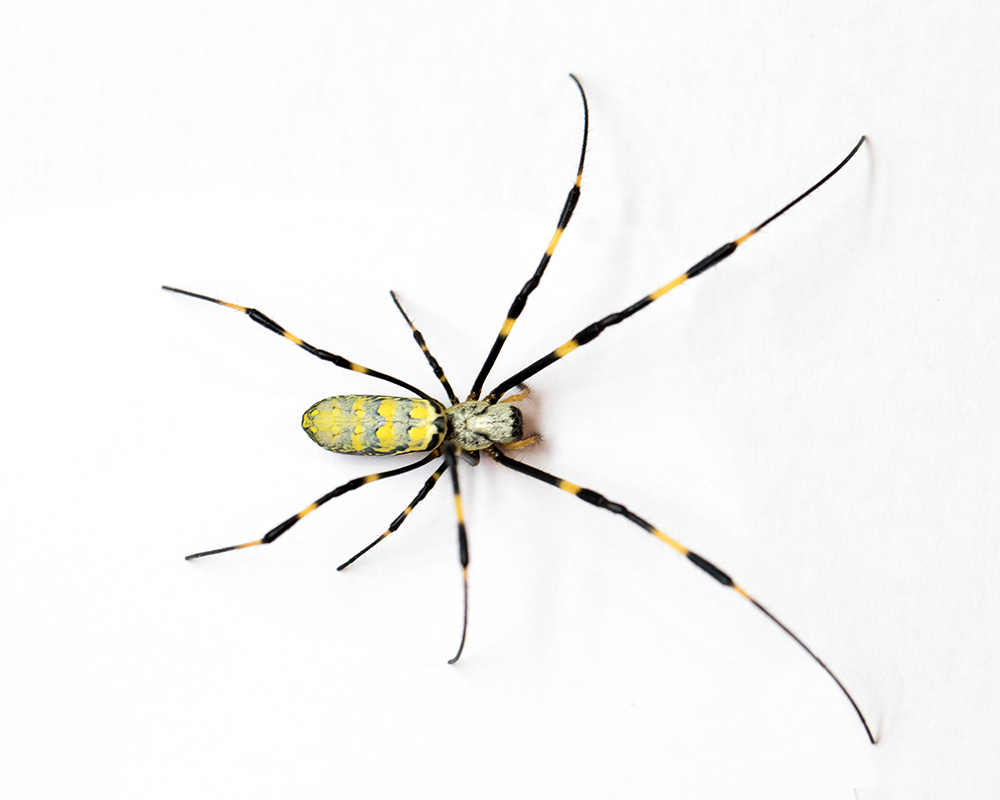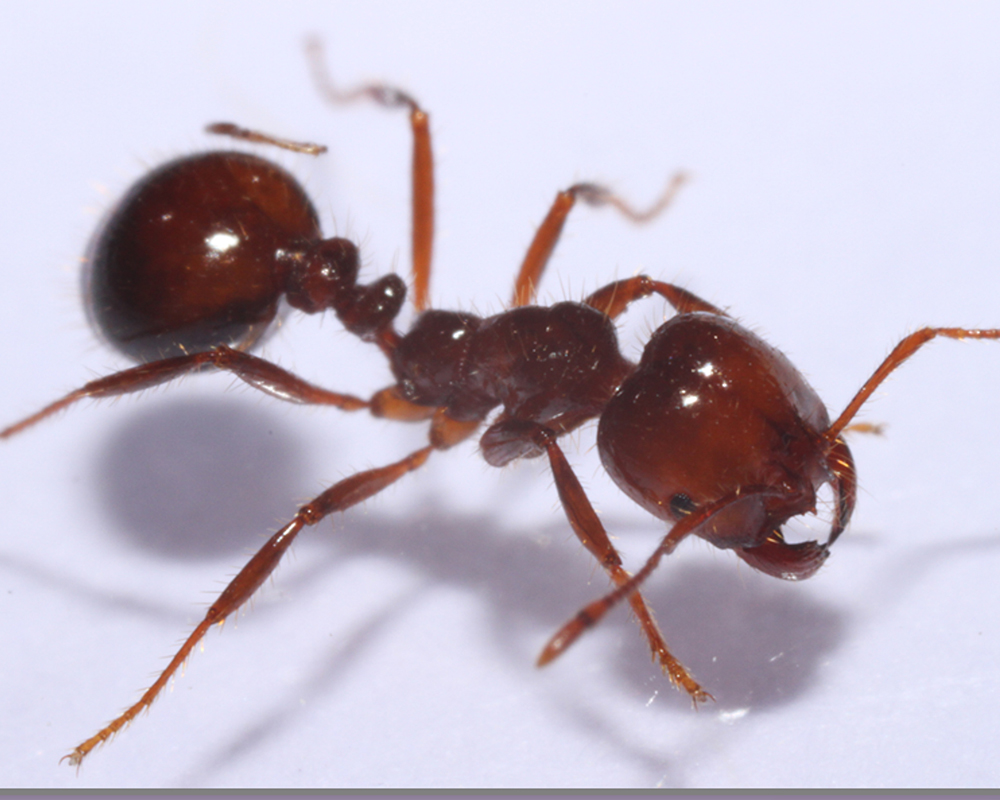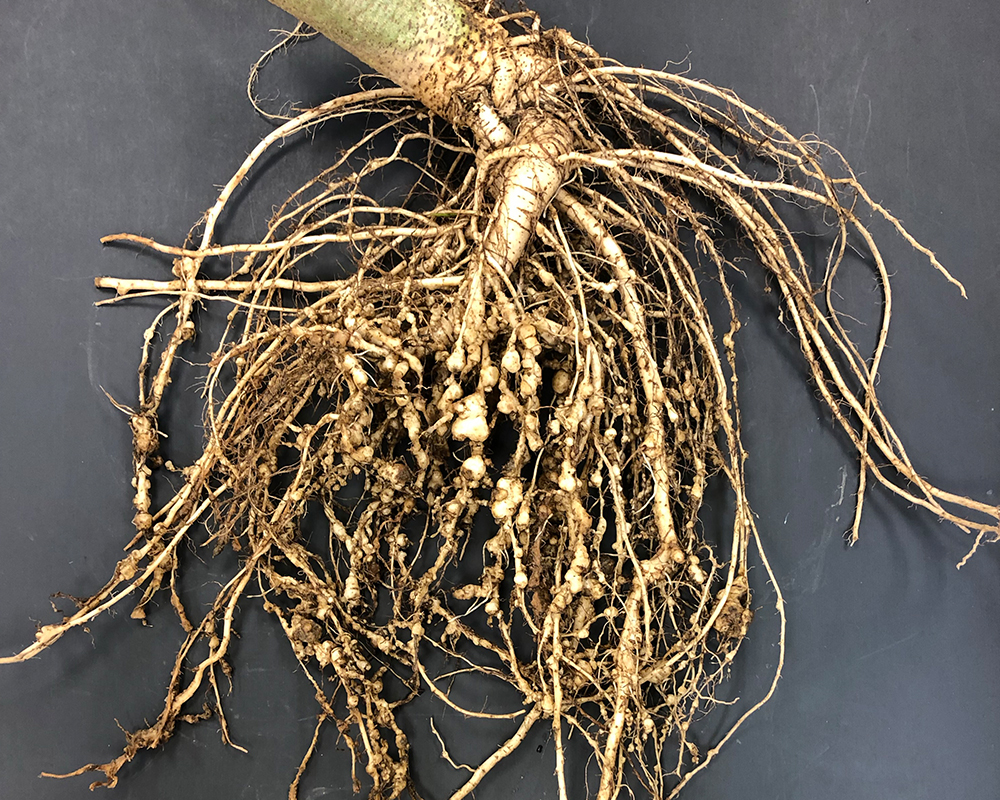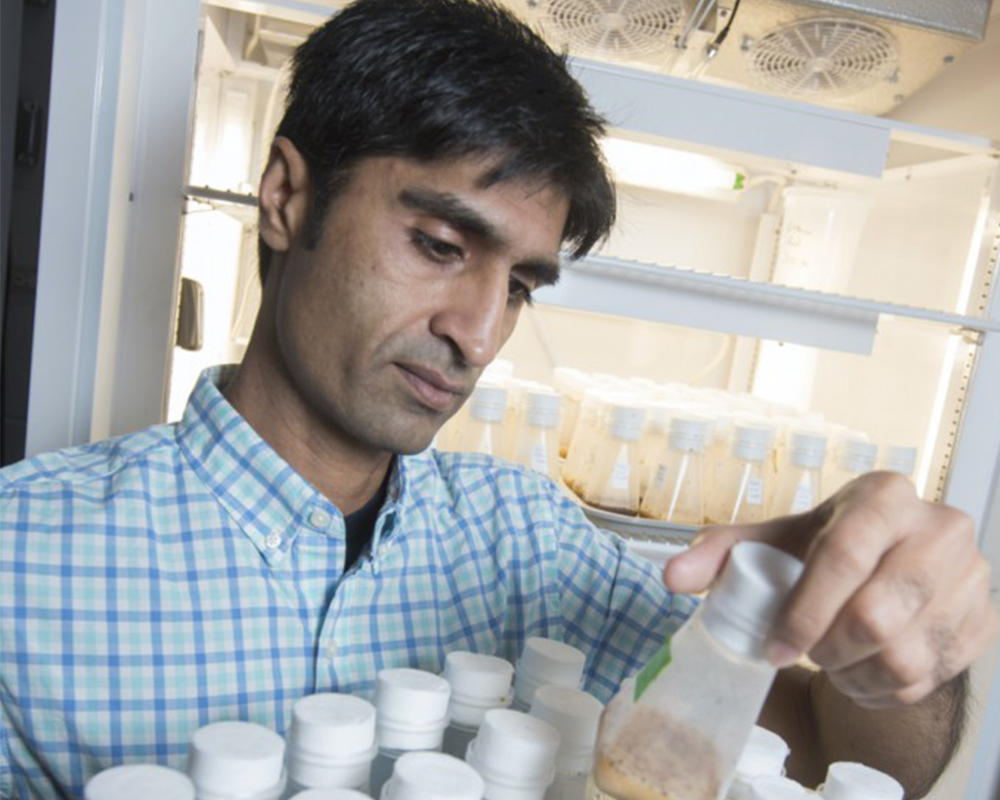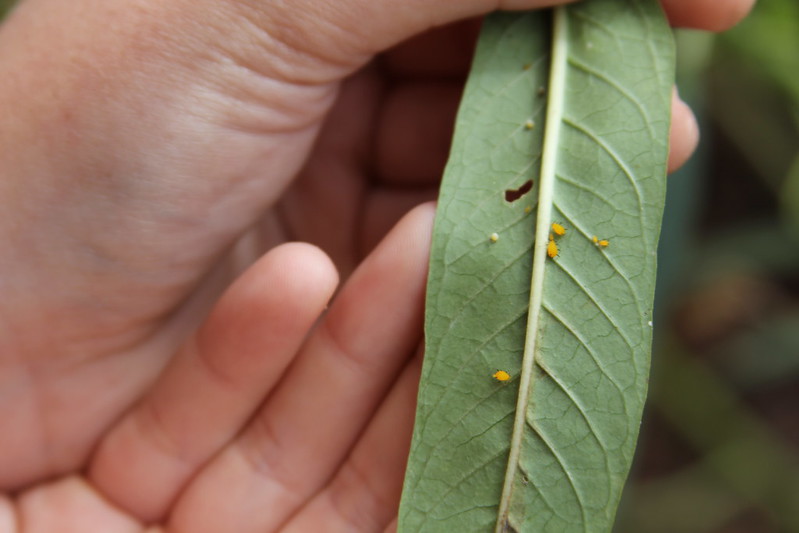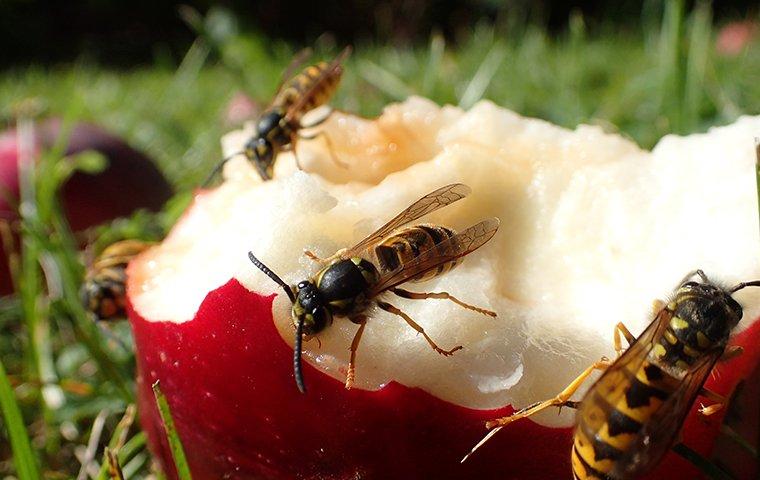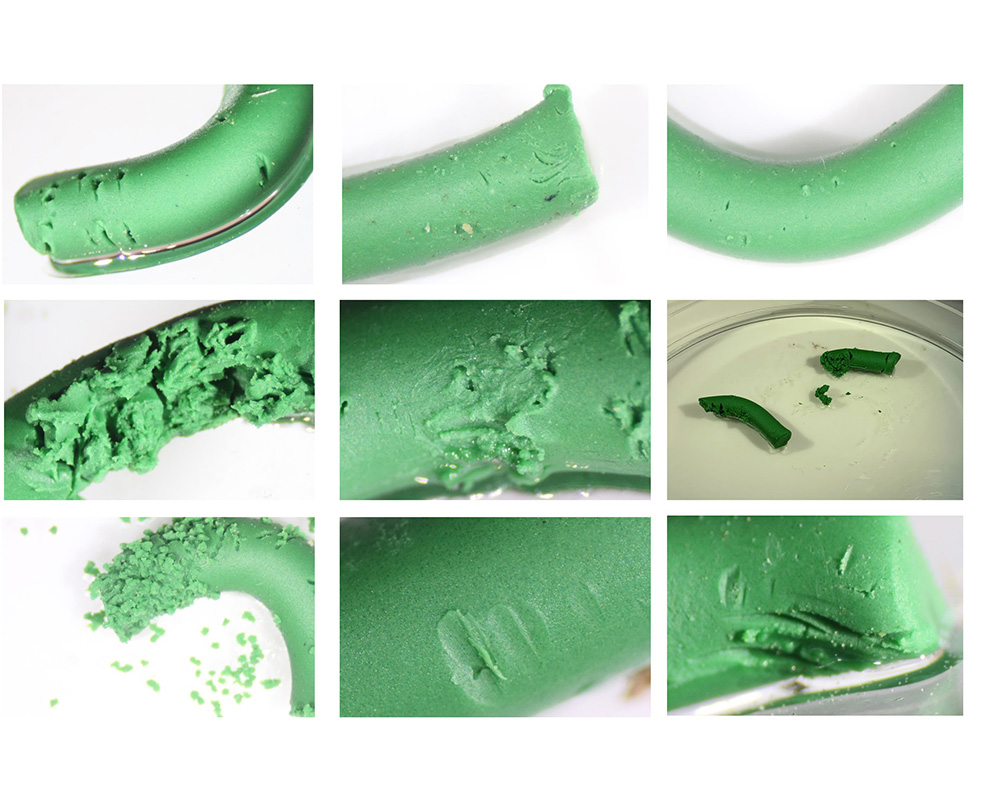 CAES News
CAES News
Tracking Bug Tracks
Modeling clay isn’t limited to art classrooms and sculpting studios. University of Georgia researchers developed a tool to track beneficial insects in turfgrass systems using clay models. Tracking these good predators can help develop eco-friendly pest management techniques for both home lawns and commercial sod growers.


